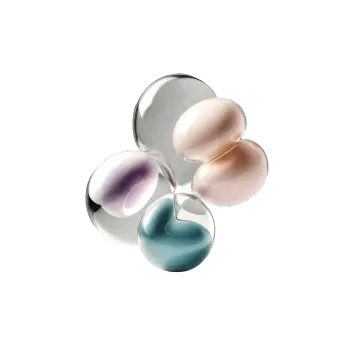What is PMS?
PMS is a collection of physical and psychological symptoms that occur in the luteal phase of the menstrual cycle – that is, after ovulation and until the start of menstruation. Once menstruation has started, the symptoms usually begin to subside.
PMS is very common – around 75% of all menstruating women experience some form of premenstrual symptoms, while up to 30% have moderate to significant physical and/or psychological symptoms that affect their everyday life. A smaller proportion, around 3–5%, suffer from a more severe form called PMDS (premenstrual dysphoric disorder), which is characterised by severe mood swings, irritability and depression in the days before menstruation. In Sweden, it is estimated that around 10% of Swedish women of childbearing age wish to seek some form of treatment for their symptoms.
Common symptoms of PMS
For some, PMS causes mild discomfort, while for others it is so severe that it affects their daily life and quality of life. PMS can cause a combination of physical and psychological symptoms. Symptoms usually appear about 1–2 weeks before menstruation and disappear when bleeding begins.
Physical symptoms:- Swelling and tenderness of the breasts
- Headaches or migraines
- Joint and muscle pain
- Swollen stomach or constipation
- Increased appetite or cravings for certain foods
- Fatigue or difficulty sleeping
- Skin problems, such as acne
- Increased sensitivity to sound or light
- Depressed mood or depression
- Anxiety and worry
- Irritability or anger
- Mood swings
- Difficulty concentrating
- Decreased sex drive
- Feelings of losing control
Causes of PMS
The exact cause of PMS, premenstrual syndrome, is not fully understood, but researchers believe it is a combination of hormonal, neurochemical and individual factors.
Hormonal changesAfter ovulation, levels of progesterone and estrogen rise and fall. This hormonal imbalance can affect the brain's neurotransmitters – primarily serotonin, which regulates mood and emotions.
Increased sensitivity to hormonal changesSome women are more sensitive to the hormonal changes that occur naturally during the menstrual cycle, which makes them react more strongly to normal levels of sex hormones such as estrogen and progesterone. This increased sensitivity is thought to affect the brain's neurotransmitters, particularly serotonin, which can contribute to both physical and psychological symptoms.
Other possible factors:- Genetic predisposition
- Nutritional deficiencies (such as magnesium, calcium, or B6)
- Stress
- Underlying mental health conditions (such as anxiety or depression)
What can be done to relieve PMS?
There are several ways to relieve PMS symptoms, depending on the type of symptoms and their severity. For many, making certain lifestyle changes is enough, while others may need medical treatment.
- Regular exercise has been shown to have a positive impact on both mood and physical symptoms, as has a balanced diet rich in vegetables, whole grains, and fatty acids such as omega-3. Reducing your intake of sugar, caffeine and alcohol can also be helpful, as these substances can sometimes worsen mood swings and anxiety.
- Stress management through, for example, mindfulness, meditation, yoga or relaxation techniques can also help relieve symptoms, especially if PMS symptoms are linked to mental stress.
- For those who want to try dietary supplements, there is some support that magnesium, calcium and vitamin B6 can relieve PMS symptoms, especially fatigue, depression and irritability.
- For more pronounced symptoms, medical treatment may be appropriate. Some combined birth control pills can help to even out hormone fluctuations and thus reduce symptoms.
- For women with more severe PMS or a diagnosis of PMDS, SSRIs – i.e. drugs that affect the serotonin system – can be effective, especially against mood swings and depression.
- Over-the-counter medications such as ibuprofen, acetaminophen, or naproxen can also help relieve the pain and headaches that often accompany PMS.
If symptoms are very severe or affect your quality of life, you should seek professional help. A doctor or gynecologist can make an individual assessment and help find the right treatment, including possible diagnosis for PMDS.

























